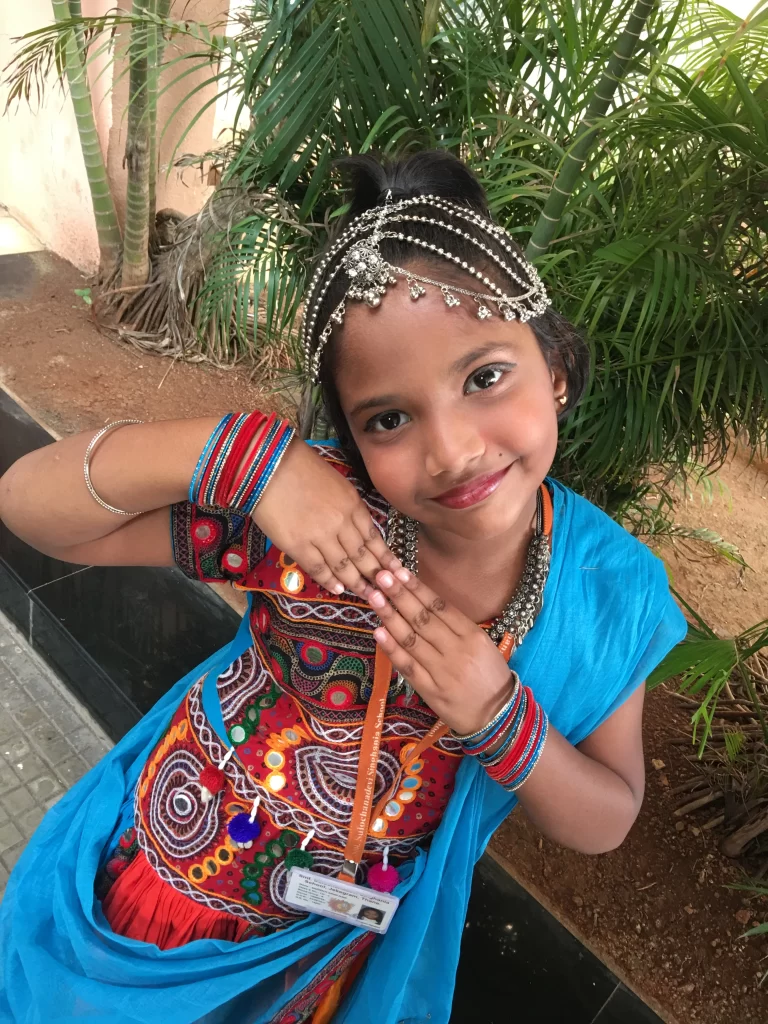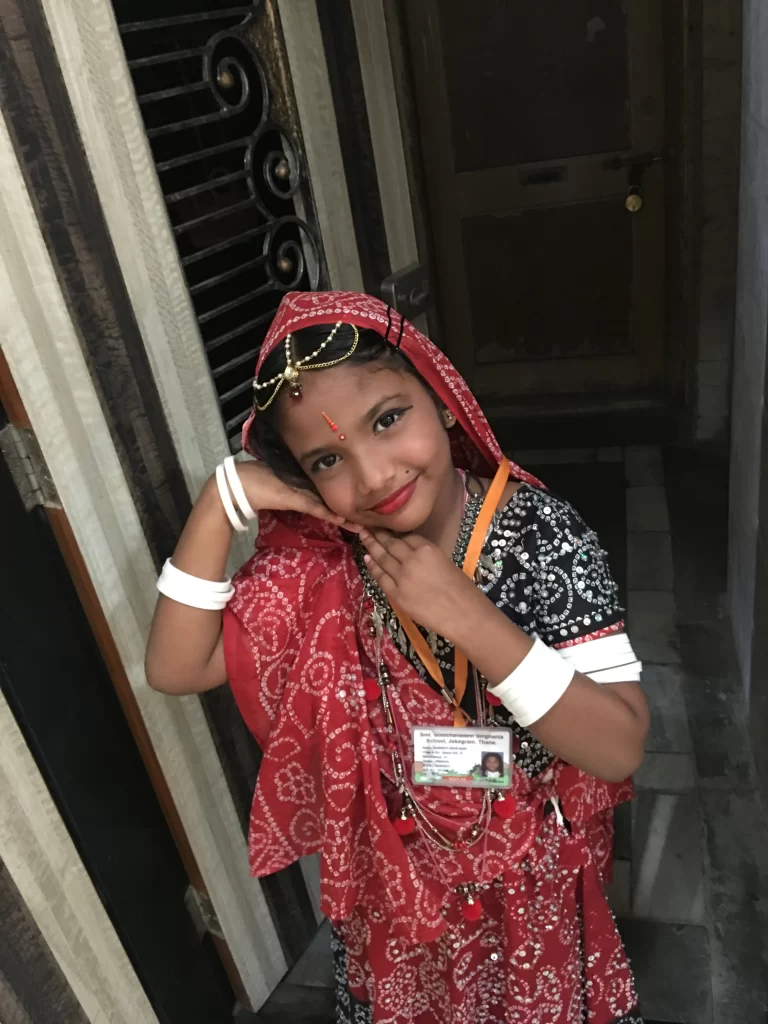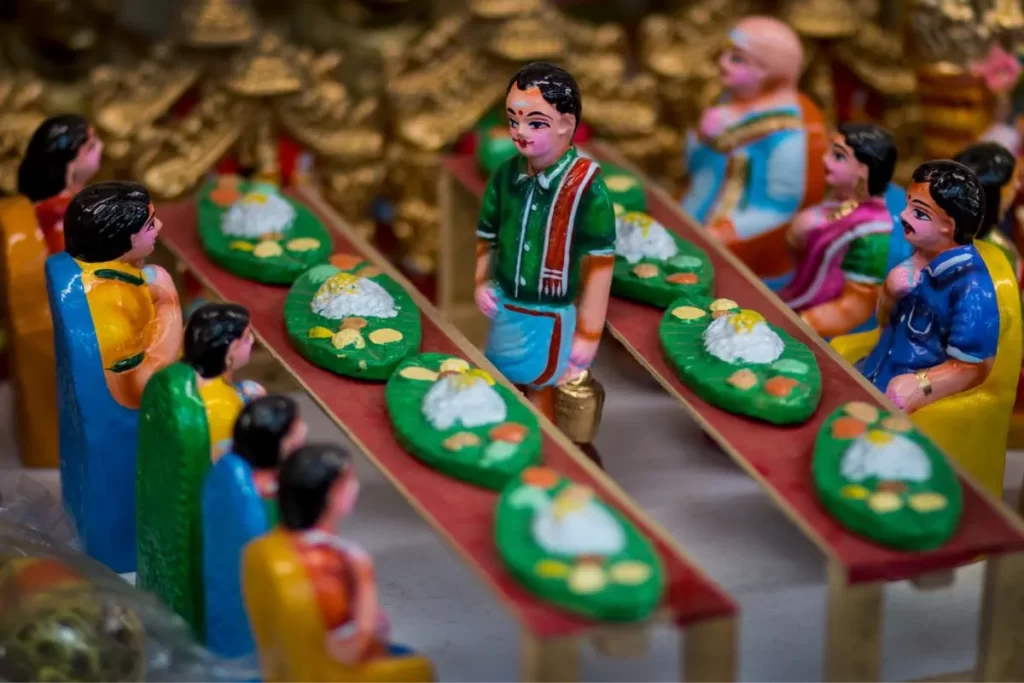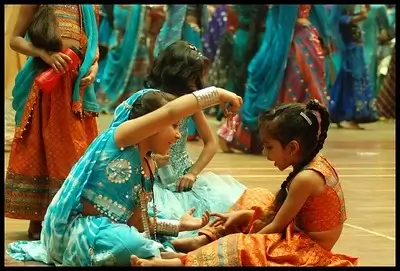As the festive season approaches, I can’t help but reminisce about my own childhood. The aroma of incense, the sound of dhol, and the colourful decorations always signalled the start of something magical.
It wasn’t until I celebrated Navaratri with my own little ones that I truly understood the importance of festivals for kids. The joy in their eyes as kids twirled in their lehengas and dhotis was a sight to behold! It got me thinking—why is it so crucial to involve our little ones in these traditions?
So, I did some introspection and digging, and what I discovered was heartwarming.
What is the Importance of Festivals?
The excitement that festivals bring can be a welcome and refreshing change for children. The break from their daily routine, coupled with the joy of new clothes and delicious food, can be incredibly rejuvenating.
Beyond external pomp and show, festivals have a profound psychological impact on children. The anticipation of something new and exciting, and the joy of participating in collective activities all contribute to a child’s emotional and psychological well-being.
Mental Stimulation
The anticipation leading up to a festival can be mentally stimulating for a child. The excitement of what’s to come can trigger the release of dopamine, the “feel-good” neurotransmitter. This not only elevates their mood but also enhances their cognitive functions, making them more alert and receptive to learning new things.
Sense of Belonging
Festivals often involve communal activities, be it a family gathering or a community event. This fosters a sense of belonging and inclusivity in children. In a world where individual achievements are often celebrated, festivals remind them of the joy and emotional security that comes from being part of a larger group.
Emotional Resilience
The shared experiences during festivals can also help in building emotional resilience. Children learn to understand that happiness can be found in simple things and that it’s possible to derive joy from the act of giving and sharing, whether it’s sharing festive treats with friends or participating in charitable activities.
Nine Reasons Why to Celebrate Navaratri with Kids
1. Festival Impact on Child Development
Festivals like Navaratri are a social affair. They offer children the chance to interact with extended family and friends, enhancing their social skills. Moreover, the planning and teamwork involved can significantly impact their cognitive development positively. This also applies to national festivals like Independence Day or Republic Day, because it gives us parents a chance to instil a sense of national pride in our kids.
2. Family Bonding during Festivals – A Connection Beyond Screens
Last year, we decided to host a children’s Garba at our gym. The joy of teaching my daughter the steps, the laughter that filled the room, and the sense of unity that filled the space was unparalleled. It was a vivid reminder of the family bonding that festivals encourage.

In an age where screens often replace face-to-face interactions, Navaratri and other festivals offer a much-needed break. They provide a platform for families to come together, engage in traditional activities, and strengthen our bonds.
3. Inclusion and Diversity
Navaratri is a beautiful tapestry of India’s rich cultural diversity, complete with unique rituals, dances, and foods across different states. This diversity is a valuable lesson in inclusion and respect for children.
When children are exposed to the various ways Navaratri is celebrated in India—from the Dandiya dances in Gujarat to the tableaus in West Bengal—they gain a broader understanding of India’s cultural landscape. This helps them appreciate the richness that comes from diversity, rather than seeing it as a point of division.
Learning about different cultural practices and traditions fosters empathy. This also includes why people observe intermittent fasting during religious festivals as a way to cleanse one’s body, mind and soul. Children learn to respect beliefs and customs different from their own, which is a crucial skill in today’s globalized world.
4. Creativity and Expression
Festivals are a great platform for children to express themselves—be it through dance, art, or cooking. It’s a fantastic way for them to discover their interests and talents.
Navaratri is also a great time to get those creative juices flowing. From making colourful rangolis to crafting intricate ‘kolu’ doll arrangements, the festival offers numerous activities that not only entertain but also enhance a child’s creativity. Engaging in these creative activities can significantly impact a child’s cognitive development. It enhances their problem-solving skills, boosts their focus, and nurtures their creative thinking.
5. Building Lifelong Memories
The joy of twirling in new and colourful clothes, the laughter shared while trying to keep up with the Dandiya dance steps, and the awe in their eyes as they see the beautifully designed idols—these are not just fleeting moments but positive imprints on their young minds. These cherished memories not only add layers to their childhood but also serve as emotional anchors they can revisit throughout their lives, reinforcing the importance of family, culture, and traditions.

6. Navaratri Values for Kids – Lessons in Spirituality and Culture
Navaratri isn’t just about dance and music; it’s a festival rooted in cultural and spiritual significance; an excellent opportunity to teach our children about the importance of good over evil, the power of devotion, and the richness of our culture.
7. Fun and Educational Celebrations
Kids love stories, and what better way to educate them than through the fascinating tales associated with Navaratri? From the story of Durga Ma’s victory over Mahishasura to the significance of each of the nine nights, there’s so much to share!
We made a simple Durga Ma craft last year, and as we glued each piece, I narrated the story behind it. Not only did my children enjoy the activity, but they also learned valuable lessons.
8. Navaratri Traditions for Children
From decorating the house with rangoli and flowers to preparing traditional dishes, Navaratri offers numerous ways for children to get involved. These hands-on experiences are not just fun but also educational.
Last Navaratri, we decided to create a ‘kolu’ arrangement at home. My little one took the lead, meticulously planning where each doll should go. It was amazing to see him so engrossed, solving little problems along the way. By the end of it, we had not just a beautiful kolu but also a child brimming with pride and confidence.

9. The Joy of Dressing Up – A Lesson in Culture and Tradition
One of the most exciting aspects of Navaratri for children is the opportunity to dress up. Whether it’s donning traditional attire or dressing as various characters from Hindu mythology, the festival offers a fun and educational way to delve into cultural traditions.
I remember the first time my daughter dressed up as Goddess Durga for a fancy dress competition. The joy in her eyes was unmissable, and it was a perfect moment to educate her about the strength and resilience that the goddess represents. It wasn’t just a costume; it became a conversation starter for important values.
Dressing up is more than just about the clothes; it’s about the stories, the history, and the values that come with them. It’s a hands-on way to teach children about courage, strength, and the importance of good over evil.
In closing – The Joy of Celebrating Navaratri with Kids
As we navigate through the digital age, where screens take precedence over genuine human connections, festivals like Navaratri serve as a beautiful reminder of the richness of our traditions and the importance of family bonding. It’s not just about the nine nights of dancing, singing, and festivities; it’s about the lifelong lessons and values we impart to our children.
I watched my children immerse themselves in the Navaratri celebrations last year; I realized that the festival had offered them much more than just fun. It had given them a sense of belonging, enriched their cultural understanding, and most importantly, brought us closer as a family.
This Navaratri, let’s make a conscious effort to involve our little ones in the celebrations. After all, festivals are as much about rituals as they are about the joy and life lessons they bring into our homes.


